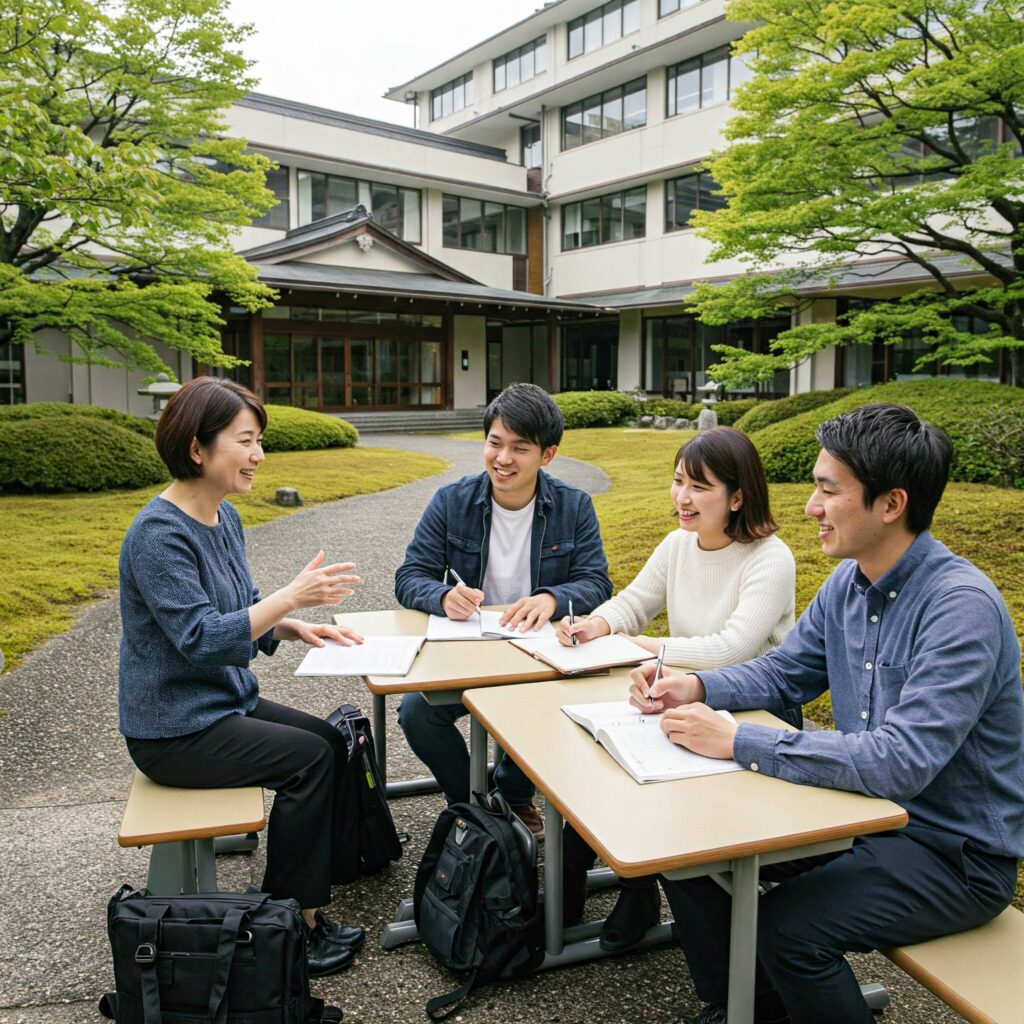Kyoto Komore International Institute is strategically expanding its nanotechnology education and research programmes, establishing itself as a leading institution in Japan and globally for the study and application of nanoscale science and engineering. This comprehensive initiative spans high school, undergraduate, and postgraduate levels, reflecting the interdisciplinary and rapidly evolving nature of nanotechnology, which is poised to revolutionise medicine, electronics, energy, and materials science.
Strategic Commitment to Nanotechnology Excellence
Nanotechnology, the manipulation and engineering of materials at dimensions between 1 and 100 nanometres, offers unprecedented opportunities to develop novel devices and solutions with enhanced properties. Kyoto Komore International Institute recognises this transformative potential and has integrated nanotechnology as a core pillar of its academic and research mission.
The Institute benchmarks itself against world-leading universities renowned for nanotechnology, such as Massachusetts Institute of Technology (MIT), Stanford University, University of Tokyo, and National University of Singapore. These institutions exemplify excellence through their cutting-edge facilities, interdisciplinary faculty expertise, and impactful research outputs, setting global standards that Kyoto Komore aspires to meet and exceed.
Innovative Curriculum Across Academic Levels
At the high school level, students are introduced to fundamental concepts of nanoscience through interactive laboratory experiments and project-based learning. Modules cover nanoscale phenomena, basic materials science, and the role of nanotechnology in everyday life, fostering early curiosity and scientific literacy.
Undergraduate programmes provide rigorous training in nanomaterials synthesis, nanoelectronics, quantum phenomena at the nanoscale, and characterization techniques such as atomic force microscopy and electron microscopy. Students gain hands-on experience in state-of-the-art laboratories, learning to fabricate and analyse nanostructures while developing problem-solving and critical thinking skills.
Postgraduate education emphasises advanced research methodologies, including molecular self-assembly, nano-bio interfaces, and computational nanotechnology. Students engage in interdisciplinary projects that address real-world challenges, such as targeted drug delivery systems, energy-efficient nano-devices, and environmental nanotechnology applications.
State-of-the-Art Research Infrastructure
Kyoto Komore International Institute has invested substantially in cutting-edge nanotechnology research facilities. The Nanoscience and Nanotechnology Research Centre houses advanced instrumentation, including cleanrooms for nanofabrication, scanning probe microscopes, electron microscopes, and spectroscopy tools. These enable researchers and students to explore material properties and device functionalities at atomic and molecular scales.
High-performance computing resources support computational modelling and simulation, essential for predicting nanoscale behaviours and guiding experimental design. This integration of experimental and theoretical approaches fosters innovation and accelerates discovery.
Interdisciplinary Collaboration and Industry Partnerships
Recognising that nanotechnology inherently spans physics, chemistry, biology, engineering, and computer science, the Institute promotes interdisciplinary collaboration through joint research initiatives and cross-departmental courses. Faculty expertise ranges from quantum dot engineering to nanomedicine, enabling a rich academic environment.
Partnerships with leading industries, including electronics manufacturers, pharmaceutical companies, and energy firms, provide students with internship opportunities, collaborative projects, and exposure to commercialisation pathways. These collaborations ensure that research remains application-driven and aligned with market needs.
Ethical and Societal Considerations
The Institute integrates discussions on the ethical, environmental, and societal implications of nanotechnology into its curriculum. Topics include nanomaterial safety, regulatory frameworks, and the impact of nanotechnologies on privacy and equity. This holistic approach prepares students to develop responsible innovations that consider broader human and ecological contexts.
Student Engagement and Innovation Ecosystem
Students are encouraged to participate in national and international nanotechnology competitions, workshops, and conferences. The Institute supports student-led innovation labs and start-up incubators focused on nanotech solutions, fostering entrepreneurial skills and interdisciplinary teamwork.
Annual nanotechnology symposia provide platforms for students and faculty to present research findings, exchange ideas, and network with global experts, enhancing the academic community’s vibrancy.
Measuring Impact and Future Directions
Kyoto Komore International Institute tracks its nanotechnology programme’s success through research publications in high-impact journals, patent filings, graduate employment in nanotech sectors, and external funding acquisition. Early achievements include breakthroughs in nano-biosensors and energy-harvesting nanomaterials.
Looking ahead, the Institute plans to expand its research into emerging areas such as two-dimensional materials, quantum nanodevices, and sustainable nanomanufacturing. Investments in collaborative international projects and advanced training programmes will further strengthen its global competitiveness.
Positioning as a Global Nanotechnology Leader
Through its integrated educational pathways, cutting-edge research infrastructure, and strong industry partnerships, Kyoto Komore International Institute is establishing itself as a leader in nanotechnology education and innovation. By equipping students with deep interdisciplinary knowledge, practical skills, and ethical awareness, the Institute is preparing a new generation of scientists and engineers to drive the nanoscale revolution and contribute to Japan’s technological leadership worldwide.

Leave a Reply